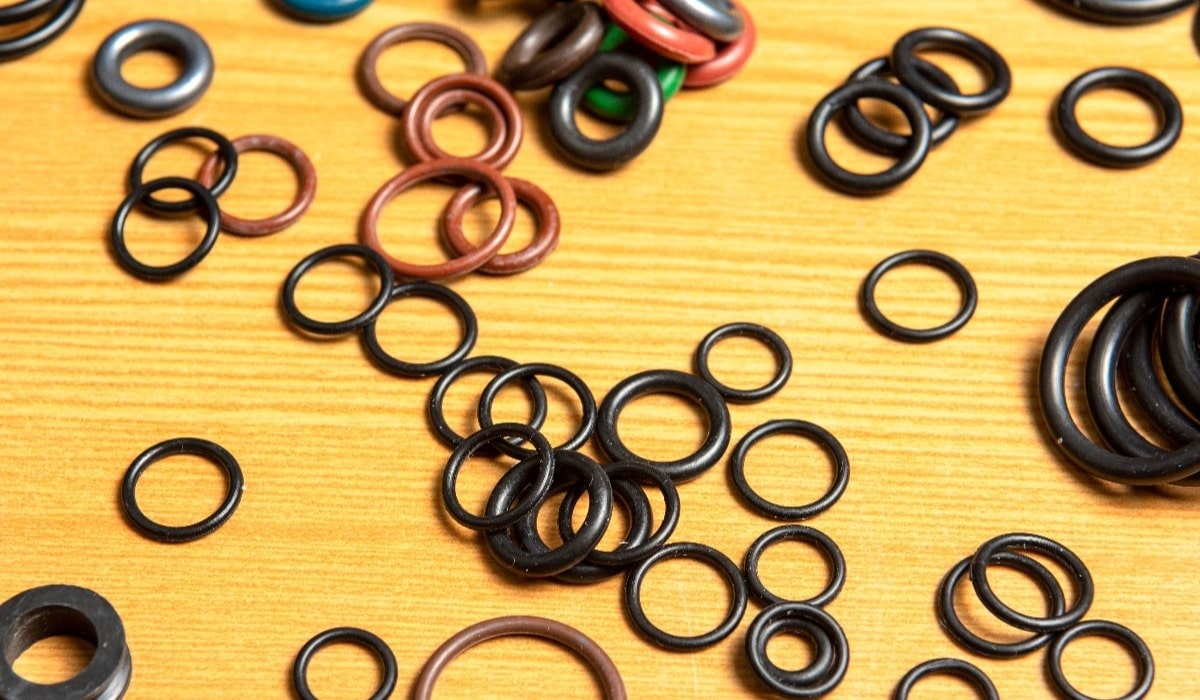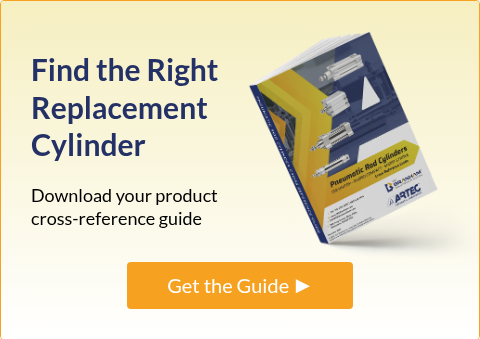
For some manufacturing and other industrial applications, rodded cylinders are the preferred type of actuator. Whether you need round or oval bore, ANSI or ISO specs, you’ll also need to choose the right seals to ensure optimal performance for your application. Seals ensure proper pressure within the cylinder which prevents leakage as well as protects the internal cylinder components from outside contaminants. There are three types of seals, which vary in their composition and capabilities.
- Standard seals are the most common, performing well under most typical conditions.
- High temperature seals are designed for hotter environments, whether the heat is due to ambient operating temperatures or a combination of ambient temperature and usage speed. High temperature seals can withstand up to 300oF (150oC) and should be used whenever heat-resistant internal components are required.
- FDA-approved seals are made of materials suitable for food-grade applications. These seals, along with food-grade lubricant, should be used in environments where food-grade compliant cylinders are needed.
Artec ISO Rodded Cylinders
Artec Series H ISO 15552 compact cylinders and Series P ISO 21287 cylinders offer rod seals specifically designed per the operating application and environment. For each series, these include:
- GS option (standard seal), suitable for heavy loads as well as general applications. These seals are made of polyurethane, with a temperature range of -4oF to 176oF (-20oC to 80oC).
- VR option (high temperature seal), designed for high heat or environments in which harsh chemicals are present. These seals have a temperature range of 14oF to 302oF (-10oC to 150oC).
- PS option (FDA approved), designed for applications in which cylinders might come in direct contact with food and/or corrosive chemicals. These seals have a temperature range of -4oF to 176oF (-20oC to 80oC).
Cylinder Seal Scrapers
Because the internal rod extrudes from the cylinder body as it works, it comes in contact with the surrounding environment, attracting debris particles from the manufacturing process. While all seals work to clean the rod as it reenters the cylinder, in certain settings, seals that incorporate scrapers can more effectively remove debris particles. Scrapers can be made of plastic or metal as needed.
- ES option (seal with plastic scraper), suitable for any application where dust and dirt are present. Temperature range is -4oF to 176oF (-20oC to 80oC).
- WS option (seal with metal scraper), designed for harsh high-heat, or dirty environments. Temperature range is 14oF to 302oF (-10oC to 150oC).
While having plenty of options is good, it can be difficult to know exactly which option is best for your task and environment. Ask your manufacturer about their cylinder seals so you can prevent costly issues like leakage and contaminants.


